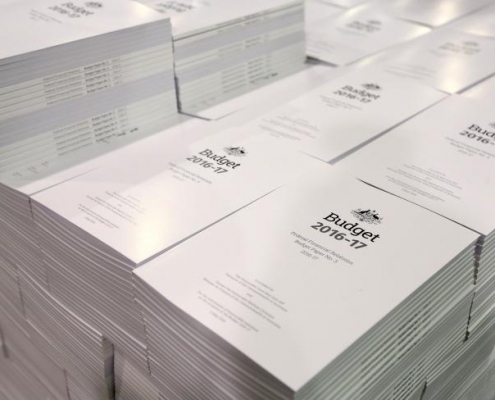There’s always an added sense of excitement for Federal Budgets handed down in an election year as the government attempts to balance the books whilst balancing the expectations of a nation.
We’ve taken a close look at the budget itself and the expert commentary on the proposed changes to our financial system and compiled a list of the most relevant items to most people.
The Federal Budget details the government’s intentions for revenue raising and expenditure for the forthcoming year and it is important to note that it is still to be considered by parliament before the new financial year.
$500,000 Lifetime Non-Concessional Cap to replace current $180,000 per annum Cap
After tax contributions made to your superannuation are currently restricted to $180,000 per annum (or $540,000 under the three year ‘bring forward’ provisions). The government has proposed to introduce a lifetime cap of $500,000 and this may restrict a number of existing re-contribution and Centrelink sheltering strategies.
Reduction of the Concessional Contributions Cap
Currently set at up to $35,000 for clients over 50, the before tax contributions usually through salary sacrifice has been a very valuable way to make contributions to your superannuation account whilst saving on tax. The government intends to reduce the amount to $25,000 regardless of your age.
Allowing ‘catch up’ Concessional Contributions
From July 2017, the government plans to introduce a policy that will allow individuals with a superannuation balance of less than $500,000 to ‘catch up’ on up to five years of the new $25,000 cap if you were unable to make the contributions over this timeframe.
Reduction of the Division 293 tax threshold
Currently, high income earners earning over $300,000 are required to pay an additional 15% tax on contributions to their superannuation fund. This threshold is proposed to reduce to $250,000, meaning more Australians will be required to pay the additional tax.
Introduction of a $1.6m superannuation transfer balance cap
Money held in a superannuation fund that is in pension phase currently pays no tax on the earnings it makes within the fund. The government wishes to introduce a cap on the amount that can be held in this environment, meaning that any excess funds will need to be held in a separate account where any earnings will be taxed at 15%.
Marginal Tax Rates
A minor tax cut has been proposed for people with income over $80,000 per year. It will mean a maximum tax saving of $6 per week for people earning more than $87,000 per year.
Taxation on Small Businesses
The government intends to increase the annual turnover for a Small Business from $2m to $10m. They’re also planning to reduce the company tax rate down from 30% to 25% by 2026-27. Initially, small businesses with a turnover of less than $10m will be reduced to 27.5% tax from 1 July 2016.
So potentially a few interesting policies that could have a considerable impact on our client’s financial future. We will of course be in direct contact with affected clients if any of the above is legislated and will affect your wealth moving forward.
For an obligation free conversation about any of these changes or your financial future, please contact us on 03 9603 0072 or at advice@endorphinwealth.com.au
Phillip Richards
Director and Wealth Advisor
Endorphin Wealth Management










